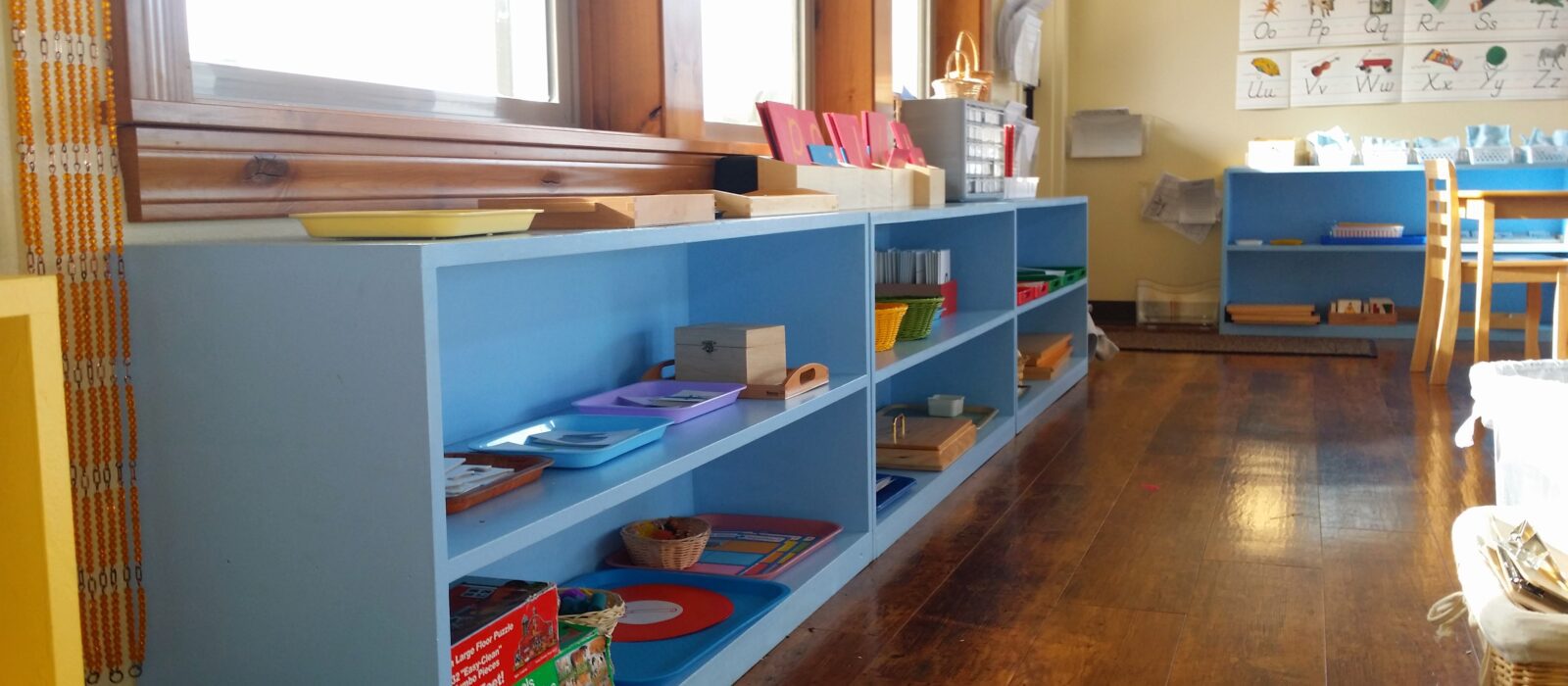Montessori Education:
A Key to Academic Excellence
Grace Montessori Academy provides a full academic curriculum in a Christ centered environment.
The Montessori Method of education, developed by Dr. Maria Montessori, is a child-centered educational approach based on scientific observations of children from birth to adulthood. Dr. Montessori’s Method has been time tested, with over 100 years of success in diverse cultures throughout the world.
It is a view of the child as one who is naturally eager for knowledge and capable of initiating learning in a supportive, thoughtfully prepared learning environment. It is an approach that values the human spirit and the development of the whole child:
- Physical
- Social
- Emotional
- Cognitive.
Components necessary for a program to be considered authentically Montessori include:
- Multiage groupings that foster peer learning
- Uninterrupted blocks of work time
- Guided choice of work activity
In addition, independence, self-discipline, and hands-on learning are well-known hallmarks of Montessori students. The Montessori graduate leaves school with excellent academic skills, a comprehensive world-view, and the abilities to work through in-depth research and engage in high-level critical thinking.
The Montessori classroom, with its brilliant hands-on learning materials, enables the child to develop as a self-learner. The Montessori teacher, trained to observe and guide each individual child, helps the child excel to his or her full potential. And the Montessori curriculum, broad in scope and rich in content, inspires the child to develop a sense of gratitude for what has come before him, and a sense of responsibility to make his own contribution to the ongoing development of humankind.
Dr. Montessori observed that children experience sensitive periods, or windows of opportunity, as they grow. As their students develop, Montessori teachers match appropriate lessons and materials to these sensitive periods when learning is most naturally absorbed and internalized.

In early childhood, Montessori students learn through sensory-motor activities, working with materials that develop their cognitive powers through direct experience: seeing, hearing, tasting, smelling, touching, and movement.

In the elementary years, the child continues to organize his thinking through work with the Montessori learning materials and an interdisciplinary curriculum as he passes from the concrete to the abstract. He begins the application of his knowledge to real-world experiences.

In middle school, the program design is an integration of the current research in human development, the trends and issues in education, and the Montessori philosophy. The mission of the program is to provide opportunities for adolescents to be self-confident and gain self-knowledge, to belong to a community, to learn to be adaptable, to be academically competent and challenged, and to create a vision for their personal future; thus, to empower early adolescents.
The Montessori curriculum, broad in scope and rich in content, inspires the child to develop a sense of gratitude for what has come before him, and a sense of responsibility to make his own contribution to the ongoing development of humankind.






